:
:
:
:
:
:
Tax in Luxembourg
:
:
Considering compulsory contributions to tax-free income
If the cross-border commuter’s spouse works in Germany, their joint salaries must be used to determine the global tax rate. Professional costs can then be deducted from this amount. Luxembourg also accepts the application of the 26-kilometer calculation, which is calculated under Luxembourg law according to how the crow flies. In this respect, you can additionally claim distance kilometers over the normal flat rate professional expenses lump sum of 540 euros.
Social security contributions, for health and pension insurance, which the German pays into the German Social Security fund are deducted. A consequence of registering these amounts is that the spouse’s allowance of 4,500 euros is also granted. This is linked to the fact that both spouses are socially insured.
For German civil servants the case is different. They do not pay into the social security system. A previous suggestion by our law firm to at least form an analogy had been rejected. However, the Luxembourg tax office is now accommodating this suggestion. Luxembourg recognizes the health insurance contributions paid by civil servants to private health insurance as compulsory, justifying it because the amount usually corresponds to the basic tariff, i.e. the statutory benefits. A further consequence of this analogy in turn also grants the tax exemption of 4,500 euros.
:
:

New circular from the Tax Director on Income-related Expenses
On June 4th 2021, the director of the Tax Administration issued a circular on certain income-related expenses. Basically, the circular does not reflect any new views, but rather states the strict practice that has taken place up to now. Work equipment must be used professionally at least 90% of the time. If this professional usage cannot be proved, then only a maximum of 10% of the amount can be claimed. One must provide proof for the scope of use.
For example if you want to claim a suitcase for business trips,then you provide proof of the number of professional trips per calendar year against private usage to the tax office. Ultimately, the finance officer has the power to believe it or not.
Strict Review of Building Society Contributions
Anyone who deducts Building Society contributions in Luxembourg is subject to particularly strict scrutiny by the tax office. Anyone who does not observe the tax binding period of 10 years and does not consider the tax purposes must expect a retroactive correction of the tax assessment. The building society contributions will be cancelled retrospectively. An additional tax payment will then made for the past.
In addition, from the 2017 tax year onwards,regardless of the start of the contract, the credits may only be used for your own residential purposes, this also applies to paid-out and cancelled building society contracts. Anyone who does not provide evidence of this will continue to be denied the ability to claim building society contributions in the future.
Such back-dated, future-oriented sanctions are alien to German tax law.
:
:
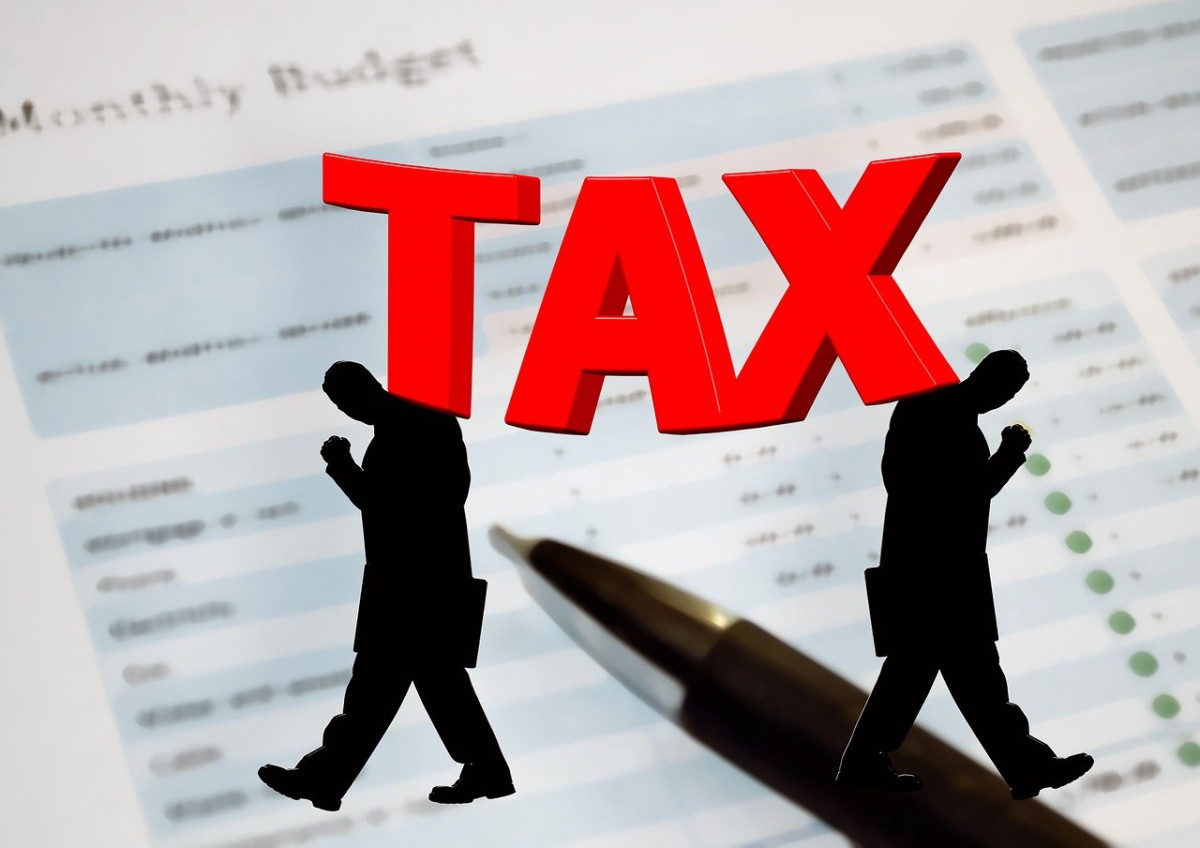
Strict Review of Building Society Contributions
:
:

Medieval Understanding of Professional Expenses in Luxembourg
A teacher claimed for a work room. There is no doubt that it would be used appropriately. The proportionate normal house costs can also be deducted.
In this case, the question was whether rennovation costs, especially in the bathroom, could also be proportionately recognized. The Luxembourg tax office rejected this, as the bathroom was a purely private cost.The tax office fails to recognize that there are toilets or even showers in normal office spaces. But only because of the possibility of private use, the costs were not recognized proportionately.
The off-setting of a PC is equally impossible in Luxembourg, as the Luxembourg tax office requires proof of exclusive use, or at least 90 percent. Common sense is completely eliminated by the tax office. Positive evidence must be provided. Many employers do not know to what extent their employees use their PCs in a private capacity, therefore no employer will issue the appropriate certificates.Thus an employee could have 10 PCs, but in the absence of evidence, the tax office would not allow a deduction for a single PC. In Germany they are already one step ahead and are at least roughly dividing the use. Usually 70 percent professional use is recognized here.
Unfortunately, Luxembourg is still 20 years behind the German thinking when it comes to interpreting the definition of professional expenses.
:
:

Reform of the Tax Card System from 2022
The income tax cards will be reformed from 2022, so far, the cards always had to be presented to the employer. Now a system, similar to the German system, will be introduced: employers will have to electronically input the data from the income tax cards on a monthly basis. The employees continue to receive the cards and only have to check the entries.
This means that the tax cards will probably not be affected by the new income tax assessments.In actual fact you will see that new tax cards are currently being issued with the income tax assessments calculated at the global tax rate . In many cases, however, this is not satisfactory, as the tax situation has changed since the last tax assessment,but there is often a year or two between the tax assessment and the new salary development.
Ultimately, this will mean that employees have to apply for new tax cards more often when there is a fundamental change. Details are not yet confirmed and in this regard many detailed changes are yet to be announced. It is also not common for Associations to be asked about this. Decision-making is not transparent. The administration will probably act on a trial and error basis.
:
:

Importance of the Tax Class Selection
In one case a couple received Tax Class 1 in tax proceedings ans this was basically due to a mistake by their tax advisor, who had made no choice. The problem was the question of the wife working in Luxembourg. In this case, her husband’s cross-border self-employment was not taken into account. It is well known, however, that working spouses are also insured in Luxembourg and a notional salary is assumed here.
No application for a tax class was made in these tax proceedings and therefore in case of doubt, the joint assessment applies. The tax advisor did not however choose the assessment as a resident either, because the self-employed spouse had not generated 90 percent of their income in Luxembourg. But what about the earnings of the wife who actually works and pays into social security for it. After all, she had worked 100 percent in Luxembourg.
The court decided that if no application is made when the tax return is submitted, no changes can be made afterwards. This refers to a decision by the Administrative court, according to which the choice of the tax class option cannot be made retrospectively. In the absence of an “application for residency”, the automatic “application for joint assessment” is naturally then out of the question.
:
:

Income-related Tax Expenses in Luxemburg
German tax law is very employee-friendly, the concept of professional expenses, namely all costs that one expends in connection with one’s working practice, is very distinct and far-reaching.
This is how the concept of “advance professional expenses” was developed,these are expenses incurred for a job that has not yet taken place. It is also possible to do an apprenticeship outside of your job and these costs are deductible,however limited to a maximum of 6,000 euros.
In contrast, cross-border commuters in Luxembourg have almost no opportunity to claim income-related expenses. The law only roughly defines the term professional expenses. Essentially, the interpretation is up to the tax administration.
Also with distance travelled for work, kilometres are limited by law to 26 km. The remaining flat rate for professional expenses is 540 euros. Mostly the costs are for professional associations and specialist literature and most cross-border commuters do not exceed this flat rate.
The Luxembourg tax law is also very dismissive when it comes to further training in your current profession. Anyone attending a seminar in another city can neither deduct the accommodation costs nor the laptop used. In Luxembourg the Distribution Prohibition, long since abandoned in Germany, still applies. Expenses that are a necessity,such as sleeping,even in a professional capacity cannot be claimed, therefore accomodation can not be claimed.
When using the PC, according to Luxembourg law, professional use of it must be proven. However, the proof is nearly impossible. Even if you have two PCs, Luxembourg doesn’t even recognize one.
Unfortunately, hardly any employee in Luxembourg opposes this. The cross-border commuters certainly do not,as it would cost money to fight against this law. The Luxembourgers do not because they already have a high net income and are often not dependent on tax savings.
Luxembourg’s tax law for employees is hardly developing further, much to the chagrin of tax experts.
:
:
The Importance of Tax-free Social Security Contributions in the Tax Return
If the cross-border commuter’s spouse works in Germany, their joint salaries must be used to determine the global tax rate. Professional costs can then be deducted from this amount. Luxembourg also accepts the application of the 26-kilometer calculation, which is calculated under Luxembourg law according to how the crow flies. In this respect, you can additionally claim distance kilometers over the normal flat rate professional expenses lump sum of 540 euros.
Social security contributions, for health and pension insurance, which the German pays into the German Social Security fund are deducted. A consequence of registering these amounts is that the spouse’s allowance of 4,500 euros is also granted. This is linked to the fact that both spouses are socially insured.
For German civil servants the case is different. They do not pay into the social security system. A previous suggestion by our law firm to at least form an analogy had been rejected. However, the Luxembourg tax office is now accommodating this suggestion. Luxembourg recognizes the health insurance contributions paid by civil servants to private health insurance as compulsory, justifying it because the amount usually corresponds to the basic tariff, i.e. the statutory benefits. A further consequence of this analogy in turn also grants the tax exemption of 4,500 euros.
:
:
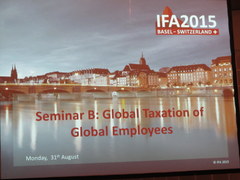
What is the Difference Between Tax Class 1 and the Individual Assessment?
The individual tax assessment was first introduced for married couples with the tax reform of 2018. It means that, unlike in the past, married couples have the choice between joint and individual taxation. In Luxembourg, this is not generally done to save taxes, but to manage the marital assets separately.
The individual assessment means that despite the marriage, you can be accounted for in Tax Class 1 and thus almost like a single person; however you have the advantage that you still get half of the spouse’s tax credit, i.e. half of € 4,500.00. In addition, depending on the family set-up, one or another of the children can be stated in the tax return, in favour of one or the other spouse. In the case of cross-border commuters, the children are generally assigned to them and not to the non-cross-border commuter spouse.
Married couples should not, as such, be classified in Tax Class 1 as it is only really intended for single people, however it means in cases of disadvantageous taxation, because of joint assessment,for example the German spouse has a higher salary,it is more advantageous to be classified separately.
The big difference with the individual assessment is that it is time-bound. Normally single taxation can only be requested until March 31, however during the Corona period an exception was made until June 30, 2021. Any tax returns that are received later can only be viewed as a joint assessment.
:
:
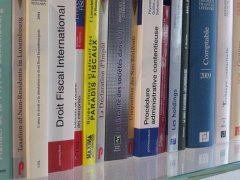
No possibility of changing tax assessments if you make mistakes?
As a cross-border commuter you know the procedures of the German tax office and want to apply them in Luxembourg, which is usually possible.
Recently, however, we have become aware of the following peculiarity with Luxembourg tax assessments. After the tax assessment has arrived, you realize that you have forgotten an insurance policy or that some numbers have shown themselves differently afterwards. According to German practice, you would then lodge an objection and receive an amended tax assessment without discussion.
In Luxembourg there are an increasing number of cases where Luxembourg officials disagree. If you have made your own mistake, Luxembourg sees no opportunity to change. References to the tax code and the meaning and purpose of the validity are ignored. We currently have two contestation procedures such as this with the Tax Directorate (as of February 2021). We will report the outcome of these cases when a decision is forthcoming.
.
:
:

New tax cards at the beginning of the year
After the tax reform, the new tax cards are always adapted to the last tax assessment. If the cross-border commuter receives a Luxembourg tax assessment, a new income tax card is immediately issued from the first of the next month onwards. The new tax card should then be presented to your employer so it can then be taken into account. The time period for which the percentages are to apply is also always specified on the income tax cards.
If tax assessments are issued for two different years on one day, two new income tax cards are still produced. This is often very confusing for cross-border commuters when the two income tax cards also contain different percentages. The cross-border commuter now asks himself which income tax card he should actually present. At first glance, the question is not so easy to answer when several income tax cards collide as it is often the case that the salary of the current year no longer corresponds to that of the previous year and the percentages are therefore different. The only question is which percentage will be closer to the correct result.
Cross-border commuters, whose salary changes insignificantly, should therefore present the last income tax card corresponding to the last tax year . If you want to be very precise, you basically have to recalculate the current year and make a new application for a tax card to be issued.
:
:

The tax exemption for remuneration for voluntary work
Anyone, who volunteers in clubs and receives remuneration for this, has an allowance of 5,000 euros under Luxembourg law, if the sum is higher than 5,000 euros it has to be declared on the income tax statement. You can also claim the specific – higher – professional costs. The tax break applies to voluntary activities by chairpersons, musicians and singers in churches or sportspersons and other non-profit organisations. Cross-border commuters who earn such income in Germany do not need to include it in the calculation of the 90% global limit on the Luxembourg tax return if this is less than EUR 5,000, which is often the case.
:
:
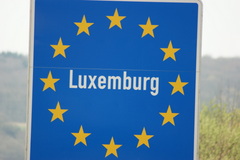
Taxation of the Profit from Rental Properties
In Germany it is common knowledge that a rental property can be sold tax-free after 10 years. The possible added value between the sales price and the purchase price is therefore tax-free. This is an essential consideration when calculating the return on rental properties. The annual rental income alone is rather meagre.
This tax-free allowance is not known in Luxembourg. Here the value added is stated and taxed in the tax return. The cross-border commuter can not avoid declaring this profit as the tax office will ask a competent clerk about the whereabouts of the previous rental income. When the sale is then notified, the tax office will tax the added value and in this year the 90% limit may be exceeded. On the other hand, there is often no added value with German rental properties and you leave the lease with no profit, resulting in no tax of the value added..
:
:

Deductibility of contributions to a German pension fund
The Luxembourg Tax Appeals Office has made a new decision on the deductibility of contributions to a German pension fund.
According to Luxembourg law, voluntary payments into a foreign health or pension system are fully deductible, i.e. without any value restriction.Although years ago there was a question of these contributions being limited to 1,200 euros. However, the requirement is voluntary and this is a decisive difference.
Cross-border commuters, who are freelancers in Germany, are therefore compulsory members and pay compulsory contributions and this is the case in the respective German pension fund statutes for lawyers, pharmacists,doctors or architects. Only those who no longer practice in Germany and are not licensed, pay voluntarily into pension funds. As long as a cross-border commuter is still registered in Germany as a lawyer or architect, for example, they cannot deduct the contributions in Luxembourg on the tax return as these are compulsory.
:
:

Home Savings Contracts After 10 Years
Many cross-border commuters still have home purchase savings contracts. On the one hand, you have a cheap loan financing option for property, however many cross-border commuters use the home purchase savings plan as a savings contract. In Luxembourg – unlike in Germany – building society contracts can still be claimed for tax purposes.
In the tax reform, Luxembourg has made home purchase savings contracts even more attractive. Taxpayers under 40 years of age can deduct double the contributions, however, there are also strict requirements: Even if the contract lasts longer than 10 years, the cross-border commuter does not have the right to freely dispose of the payment. It must be used to finance construction,acquisition or transformation of a house for personal housing needs. Any other use leads to a corrective taxation for the last 10 years, therefore if you renovate a rental apartment or commercial property with the savings amount, you lose the tax advantages. The same applies, of course, to those who buy a motorcycle with the money or finance other things that have nothing to do with a home.
Cross-border commuters in particular are of the opinion that after 10 years payments can be used freely, this however, is a fallacy.
:
:

Taxation of a Spouse in the Same Business
If spouses, mostly wives, work in the husband’s business, there is an examination of the pension insurance in Germany to determine whether the employment is actually serious. In Luxembourg there is a fear of fraud especially in connection with short-time work allowance, where some entrepreneurs hire relatives at short notice in order to collect short-time allowance for them and therefore a special procedure has been introduced: Employees and spouses are not insured as employees, but as self-employed meaning that you have to pay the employer’s contributions to social security yourself.
This procedure in social law leads to confusion and confusion in the context of tax law. Some tax advisors believe that as a result, married couples cannot be employed and they also do not prepare pay slips for them. In one case, this resulted in the fatal consequence that an entrepreneur was taxed in tax class 1, although his wife worked in his business. He still had a business in Germany meaning that the profit of which meant that the 90% limit could not be reached in Luxembourg. As a result, the tax office saw only one earner in Luxembourg, who was then accounted for in tax class 1,had the spouse been billed as an employee he would have paid 10,000.00 euros less in taxes as the spouses income,taxed jointly would have made it to the 90% limit. It is enough for one spouse to reach 90%. In addition, in the event that both are employed and pay into social security, the extra-occupational allowance of 4,500.00 euros could be claimed.
The problem of the intersection between social security law and tax law has led to this rare configuration here since the tax reform. Employing spouses in Luxembourg is particularly common among freelancers and sole proprietors.
:
:
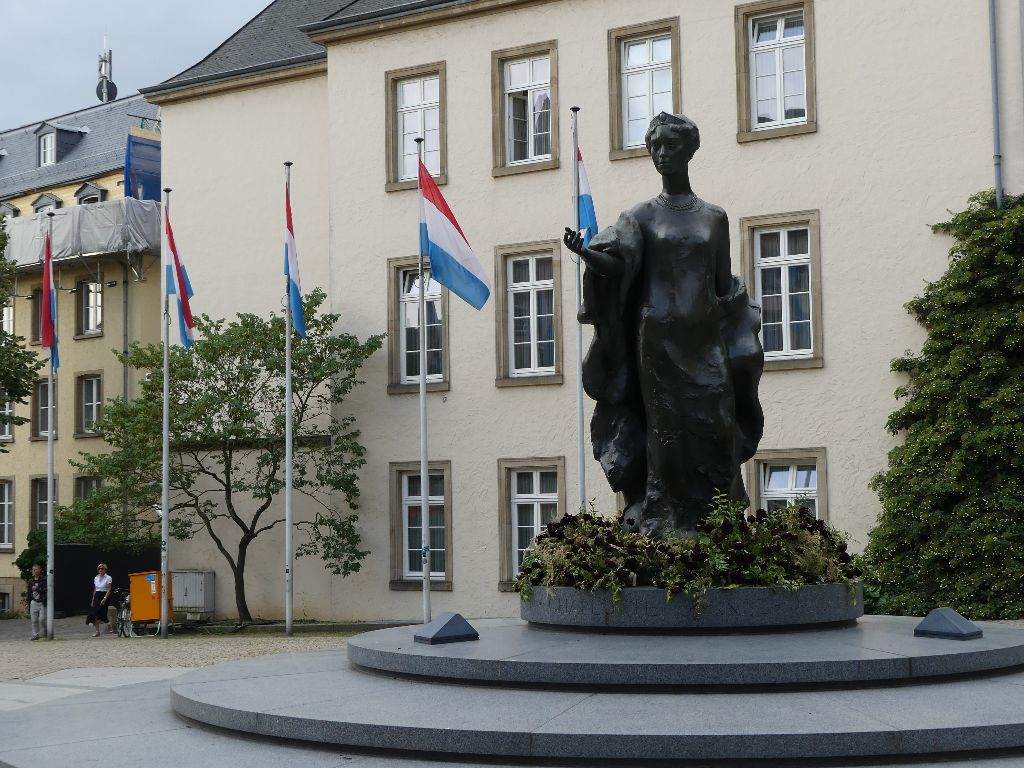
Taxation of short-time work benefits in Luxembourg
During the Corona period, many companies reduced their working hours. The time not worked was paid to the employees as short-time wages. This was reduced to 80% in Luxembourg. Some employers still paid 100%. ADEM reimburses Luxembourg companies for short-time working hours at a rate of 80% of their normal wages.
In Luxembourg, the short-time work allowance is fully taxed on the monthly income tax card. In this respect, nothing fundamental changes for cross-border commuters.
In Germany, the taxation of German short-time work benefits works differently. Cross-border commuters are generally not affected by this. Nevertheless, the news in Germany could beconcerning. It says there that employees have to expect back payments when they prepare their tax return for 2020. This is due to the fact that the German short-time work allowance is not taxed, but only calculated subject to progression, thus hilighting the different systems of taxation here.
:
:

Building Society Contributions after the Tax Reform
In Luxembourg building society contributions are tax-deductible since 1984, they can be deducted with the usual maximum limit, the reason being is that Luxembourg aims to reach 1,000,000 inhabitants by 2060. In order to encourage construction, building society contributions are tax-deductible from when the building society loan is allocated. Fees for the conclusion of the building loan contract,as well as credit interest, are also recognized as contributions. These must be used for the purchase, construction or remodeling of an apartment or house.
The purchase of a building plot is also subsidized, up to 2016, € 672 per household member was deductible, however the law has changed to encourage young people in particular to save for their own home. In this respect, it was newly introduced that the deductible amounts are 1,344 euros per person if a taxpayer is younger than 40 years old.
Example 1: The taxpayer was born in 1977,for 2016 he was able to deduct 672 euros, then in 2017 and 2018 he could deduct 1,344 euros, however as of January 1, 2019, he was 41 years old and it falls back to a deductible amount of 672 euros.
Example 2: The taxpayer is 42 years old and his wife 35, they have a child aged 10 years. The 42-year-old is entitled to child benefit. As the wife is only 35 years old, 3 x 1344 euros can be claimed, the decisive factor therefore is the age of the youngest of the two jointly assessed taxpayers.
The same applies to a Partnership. In the case of an individual assessment, the taxpayer can only claim 2 x 672 euros, i.e. for himself and his child. His younger partner is not yet 40 years old and can therefore claim 1,344 euros, however if the wife is entitled to family benefits, she can claim 2 x 1,344 euros, as the child is then assigned to her for tax purposes.
Article 111 L.I.R. requires a minimum term of 10 years. If the contract is terminated beforehand, the tax deductions will be cancelled retrospectively. The tax assessments are then changed resulting in a retroactive tax payment for the years concerned. This is also the case if the amounts are not used in accordance with the tax law. For example, it must be used for a home, not for a rental property. The tax authorities have been stricter with these assessments in recent years so that if a rental contract asserted in a tax return in previous years no longer appears in subsequent returns, the tax office will investigate it. The new law applies to all current contracts, including old contracts that still existed in 2017. The taxpayers are of course obliged to report the premature termination of the home loan and savings contract within one month so that the tax authorities make amendments for this.
:
:
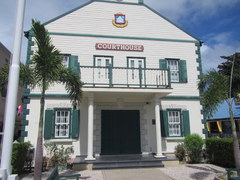
Tax measures by the financial administration due to the Corona crisis
The deadline for completing a tax return in Luxembourg is usually March 31, however this period is basically not a deadline as we know it in Germany. Failure to do so has no real consequence. The administration postponed this deadline in 2020 to June 30th, although it is only important to those few taxpayers who file individual tax assessments, for example, when the income of the non-border commuter spouse is significantly higher or is yet to be determined due to being self-employed.
Anyone who has to make advance tax payments can suspend them for the first two quarters upon request, however the crisis does not mean that old debts that arose up to February 29, 2020 are deferred.
:
:

The Next Tax Reform is still in Progress
The Luxembourg government is planning another tax reform. Finance Minister Gramegna supports the “Bachelors Pay too High Taxes” campaign. A citizens‘ initiative of 6,800 people wants the tax tables to be changed. At present, single people pay two to three times as much taxes as married people. Although taxes in Luxembourg are comparatively low, Finance Minister Gramegna has promised a remedy.
There will be no more tax classes in the future, but a single, new tax table, neutral in relation to the family situation, only the income will count. When exactly the tax reform will come, Gramegna could not say, but it will solve many worries. A legislative period lasts 5 years so in this respect, the finance minister’s promise would have to be kept by 2023. The complexity of the question of justice will make practical implementation difficult, especially the comparable taxation of families versus singles.
:
:
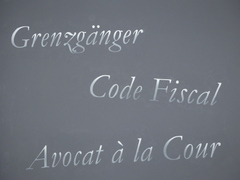
Strict Rules for Building Society Contributions
Cross-border commuters can deduct building society contributions in the Luxembourg tax return, however conditions are attached to this. The home loan and savings contract must be concluded to finance the construction, rennovation or purchase of living space for your own residential purposes. If you wanted to finance a rental property or provide a house for your children with other people in it, you cannot claim these contributions for tax purposes in Luxembourg.
For several years now, the tax office has been looking closely at the numbers of the building society loan contracts as part of an assessment and questioning the purpose of the building society contract if the contract no longer appears in the tax return. The tax office can then change tax assessments retrospectively for up to 10 years. The tax contributions will be withdrawn and retrospective tax payments will have to be paid.
From the 2017 tax year, the rules have become even stricter. If the credit is not used for your own residential purposes, you will be excluded by law from claiming building society contributions in the future too. The problem is that when a house is bought in Germany the rules are not so strict regarding the loan usage.German agents do not point out or know the rules Luxembourg taxes require.
:
:

Notices from Offices RTS and Z are Inconsistent
Until 2017, cross-border commuters could apply to be taxed as non-residents, office Z completed this request. This was done in particular for cross-border commuters who had to pay tax in Germany for working more than 19 days outside of Luxembourg. The portion taxable in Germany was simply deducted from the tax base,then a high reimbursement followed.
These cases have recently been referred from Office Z to Office RTS the reason being that the qualifying 9-month period was interrupted. The assessment by Office Z generally requires that the cross-border commuter has worked in Luxembourg for nine consecutive months and working-away days interrupt this 9-month period, which is why Office Z is no longer responsible.
From 2018, the rule was supplemented by the so-called 50-day rule. The office Z remains responsible. The days away, however, are then taken into account in the Global Tax Rate. At the beginning of 2019, the RTS office issued tax assessments for the first time. The calculation was initially carried out in the same way as Office Z had calculated, namely without any Global Tax Rate proviso. In the past, the RTS office had always counted on this proviso, i.e. taking into account the salary that is taxable in Germany. Current notifications from July 2019 now confirm the original procedure of the RTS office. A progression reservation is calculated. The reimbursement is therefore lower or even zero. From 2018, however, the calculation mode would have to change again or Office Z would have to be responsible for these cases,however, it will remain with the calculation of the progression.
Ultimately, there is nothing to counter this, because residents are taxed the same way. There is therefore no worse position for cross-border commuters,although the tax returns are currently still completely inconsistent with both Office Z and Office RTS. There are still cases in which Office Z assesses even though the 9-month deadline has not been met. On the other hand, notices are issued by the RTS office without taking into account the Global Tax Rate proviso.
:
:
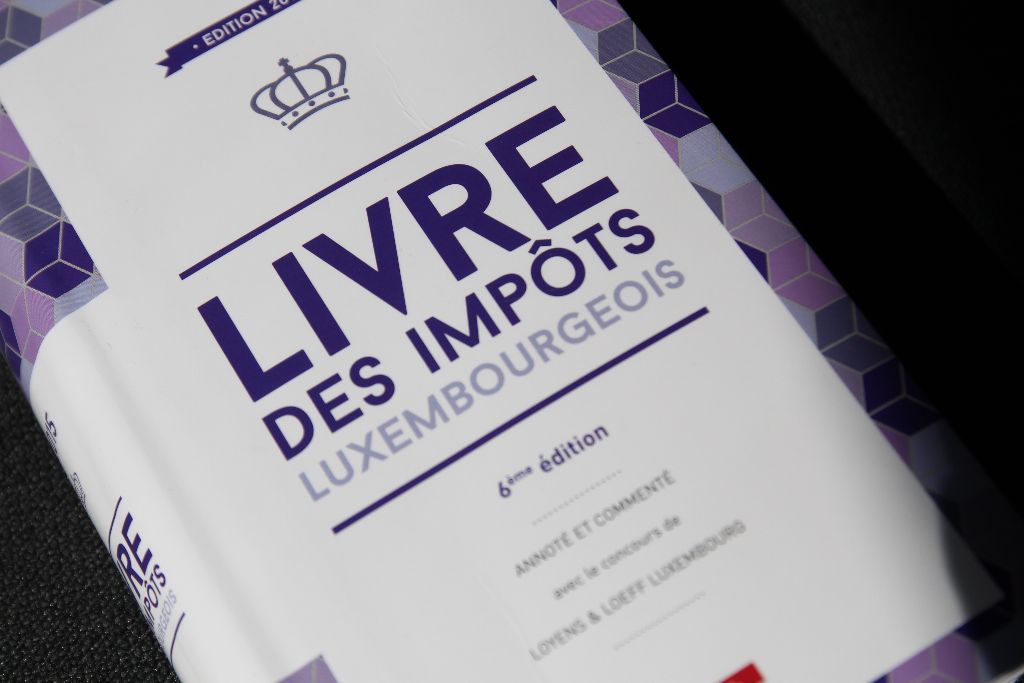
Taxation of Dividends
The taxation of dividends has become more complicated due to the tax reform and the underlying strategic considerations.
Cross-border commuters who are partners or shareholders in a corporation occasionally receive dividends. These are taxed at a flat rate of 15% in Luxembourg and the partner receives a tax certificate showing this. However because of the residence in Germany, the dividend is also taxable in Germany. The withheld tax paid in Luxembourg will be taken into account by the German authorities.
According to the DTT,[Double Taxation Treaty] Luxembourg may, but does not have to, tax the dividend at source. Depending on the clerk, this happens one way or the other, generous clerks even point out to cross-border commuters that the subsequent taxation of dividends often leads to a back payment of taxes in Luxembourg. In the assessment procedure, cross-border commuters are often advised not to tax the dividends in Luxembourg. Rightly, however, Luxembourg also has the right to do so.
The problem now lies in the new € 13,000 limit introduced by the tax reform. If the dividend is not taxed in Luxembourg, it counts as German income without restriction. If the dividend then exceeds 10% of the total income or € 13,000, tax class 2 does not apply to married couples in Luxembourg. It must therefore be carefully considered which disadvantage or advantage is the greater. Since the difference between tax class 2 and 1 for salaries over € 100,000 is often € 10,000, so the variant that the dividend is to be post-taxed in Luxembourg is usually recommended. In individual cases, however, it must be recalculated.
:
:

:
:
©Rechtsanwalt Stephan Wonnebauer – Impressum
